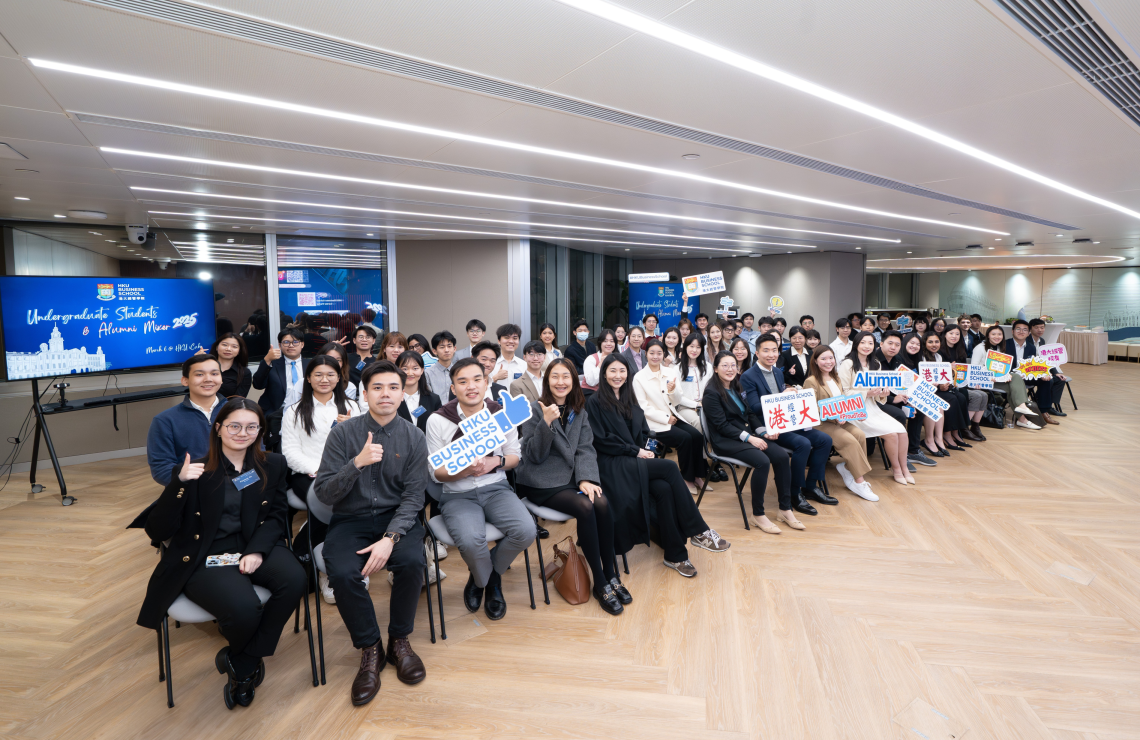Former dean Eric Chang talks about the early days of FBE
Professor Eric C. CHANG, former dean of FBE who recently retired, was a leading force behind the creation of the faculty. Looking back over his 20-year career at HKU, he talks about the challenges of building a new faculty and shares his thoughts on the challenges and opportunities ahead for FBE students.
20 years ago, when Professor Chang was invited to join the HKU family, the Faculty did not yet exist and HKU’s reputation for business studies was rather weak. At the time, he was working in the US as a professor at the DuPree College of Management of the Georgia Institute of Technology. He felt that Asia was becoming a major player in global business, and finally he decided to take the job.
“HKU did not have a faculty of business or faculty of economics, so I saw an opportunity to make a good contribution here,” he recalls.
It was a good decision, he says now. “I feel very lucky to be at HKU for these 20 years. It was the right place, at the right time, and with the right people.”
The faculty was formed in 2001 by the amalgamation of the School of Business and the School of Economics and Finance, a feat Professor Chang attributes to the man who had hired him, Professor Richard Wong, the founding dean of FBE.
“I’m grateful for the many talented people I had the opportunity to work with,” says Professor Chang. “The two schools became one faculty. It was not easy, but Professor Wong made it happen.”
The new faculty aimed to emulate about 80 percent of the US business school model, which was considered far more advanced than the UK equivalent, while keeping the British essence to create a unique Faculty of Business and Economics at HKU.
“I think we’ve largely achieved the 80 percent, but there is always room for improvement,” Professor Chang says.
One of the most difficult and key challenges has been finding a balance between research and teaching requirements. He felt that focusing on quality of research output rather than quantity was essential to building the faculty’s reputation, though that was at odds with the university’s practice. He also fought for better pay, a more supportive research environment, and fewer teaching hours.
For the future, Hong Kong needs to maintain its strengths in the rule of law and global-mindedness. But with the fast-changing world environment and the US-China trade war casting a long shadow, FBE students will also need to develop a specialisation in their business studies, such as cultivating a deep understanding of China.
Critical thinking skills can also give students an edge and help them develop logical analytical abilities that can be adapted to changing situations.
Lifelong learning is essential, he says. “The world is changing so rapidly. The knowledge you learn here in eight to 10 years is totally out of date. You have to keep learning.”
Professor Chang intends to follow this advice himself during retirement, along with occasional teaching, spending more time with his family and working with his church.
“I also need to keep self-learning and creative thinking to offer some insights to people. I value some education opportunities that I still face.”








